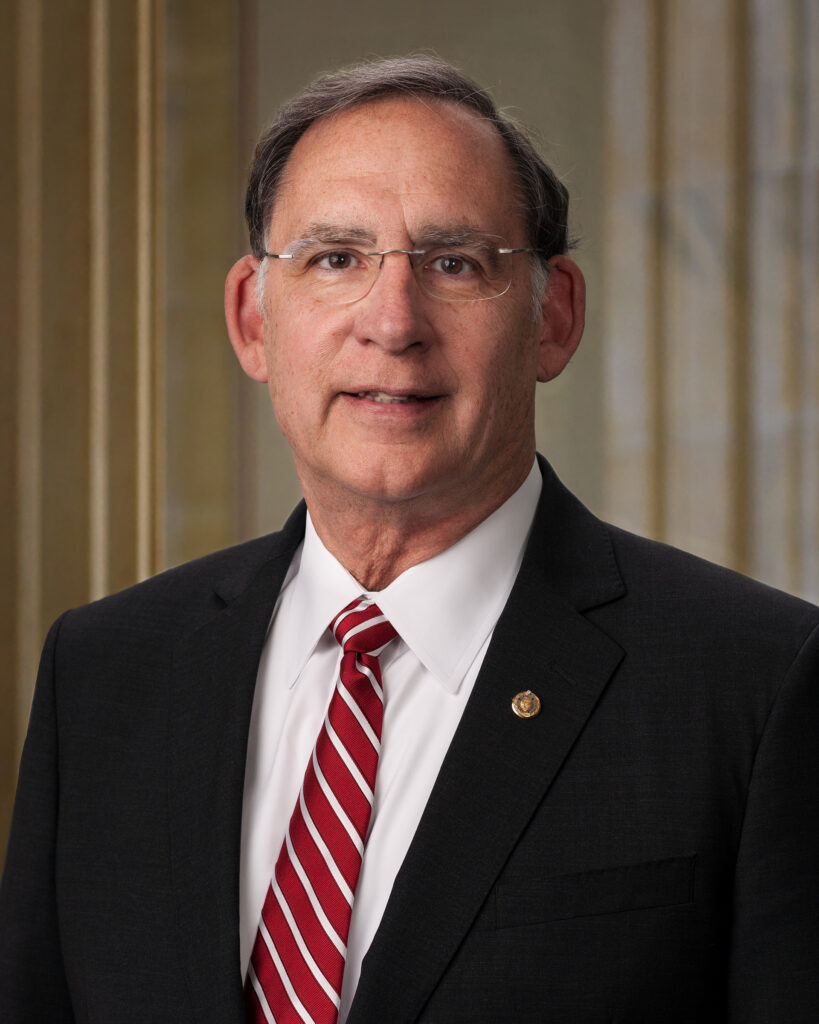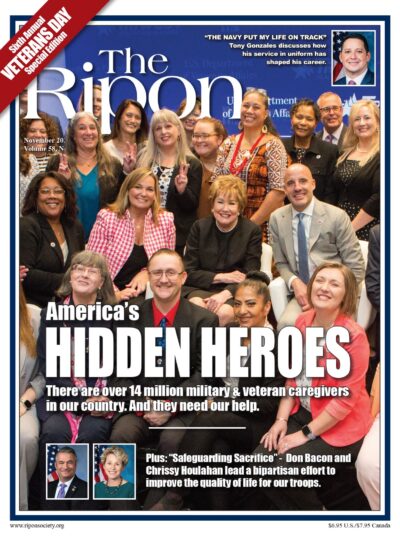
For too long, there’s been a devastating reality among the community of Americans who have worn our nation’s uniform, defending our freedom and way of life – mental health battles that end in suicide.
Veterans Day is an opportunity to honor and thank all former servicemembers for their efforts and sacrifice on behalf of our country, but it also presents us with an opportunity to recommit ourselves, as a nation, to do everything possible to help them navigate and overcome the struggles they face. This is part of what it means to truly have their backs.
According to the latest Department of Veterans Affairs (VA) report, 17 veterans take their own life each day, on average. This trend has remained stubbornly high for years.
Finding satisfactory answers to the veteran suicide epidemic has been a top priority for me and many of my colleagues in Congress. Ultimately, those at risk should always have support and never be without hope. We are actively pursuing solutions to supply both abundantly.
According to the latest VA report, 17 veterans take their own life each day, on average. This trend has remained stubbornly high for years.
After years of meeting with former servicemembers, veteran service organizations, nonprofit groups, VA leaders, and medical personnel about the root causes that result in these tragic deaths, we’ve advanced several major policy reforms to help identify the shortfalls that contribute to or fail to prevent veteran suicide. They represent important steps in our joint efforts to address this crisis and, while already making a difference, will take time to be fully felt.
In 2007, the Veterans Crisis Line was launched to provide real-time support to former servicemembers experiencing a mental health emergency. As of this July, it has received more than 10 million calls, texts, and electronic chats from veterans seeking help.
Back in 2014, Congress passed the Clay Hunt Suicide Prevention for American Veterans Act thatimproved care and suicide prevention resources for veterans by increasing access to mental health programs, providing incentives to recruit and retain psychiatrists to treat veterans, and enhancing resources for members of the military transitioning to civilian life. I was proud to support this landmark legislation.
A few years later, I championed the Improve Well-being for Veterans Act, which created a new grant program to enable the VA to conduct additional suicide prevention outreach through veteran-serving nonprofits in addition to state and local organizations. That effort grew out of the recognition that there were already a multitude of independent groups on the ground, ably serving and reaching veterans in their own communities, and the importance of leveraging that familiar care and contact given only about a quarter of veterans who die by suicide had received health services at the VA.
Just as important, the statute required the VA to develop a tool to monitor the progress of these initiatives so that resources can be concentrated on successful programs – because simply funneling more money to ineffective approaches is unacceptable.
That momentum spurred us to take an even closer look at the idea of producing and analyzing metrics that can help track the progress being made to save veterans’ lives.
That’s why in this Congress, I teamed up with the chairman of the Senate Veterans’ Affairs Committee to introduce the Not Just a Number Act to require the VA to examine veterans’ benefits usage in its annual suicide prevention report in order to evaluate the relationship between VA benefits and suicide outcomes.
Those at risk should always have support and never be without hope. We are actively pursuing solutions to supply both abundantly.
We know this issue is complex and should be viewed from a wider lens than a solely clinical perspective, because there is rarely a single cause to suicide. Challenges like food insecurity, lack of housing, and financial strain are all common contributors.
Our legislation would allow for the study, from a holistic standpoint, of how these variables factor into the persistently high number of veterans taking their lives in addition to better understanding the scope and scale of services available to them.
I’m pleased VA leaders testified before our committee that they agreed with the bill’s intent and share the desire to pinpoint correlations between Veterans Benefit Administration programs and clinical care. We hope to pass it through Congress and into law before January so that it can be implemented quickly and provide more desperately needed answers.
As the son of a Master Sergeant who retired from the Air Force and a longtime member of the Veterans’ Affairs Committee in both the House and Senate, I take seriously our country’s obligations to those who answered the call to serve and sacrifice so much. There is no more urgent area where we must live up to our promise than veteran suicide prevention.
I will never give up on helping ensure our nation’s heroes have the support and hope it takes to keep them here with us and lead long, healthy and fulfilling lives.
John Boozman is the senior United States Senator from Arkansas and the dean of the state’s Congressional delegation. He is also a senior member of the Committee on Veterans’ Affairs.




